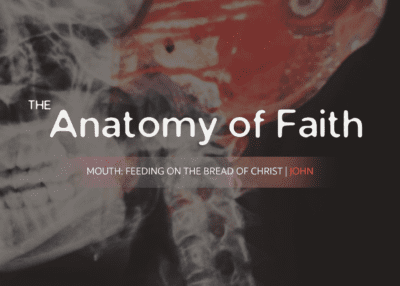From the moment they deliver their babies, loving parents want to give their children what is best. They work to build homes that are spiritually grounded, physically safe, and emotionally secure. They strive to establish families that bear fruit. But even the safest, happiest, and most fruitful families face a fearsome threat: an enemy who seeks to destroy them.
It’s been this way since the curse in the Garden, when the Lord prophesied that the seed of the woman would crush the head of the serpent (Gen. 3:15). Ever since, Satan has wanted to kill the Messiah and is always stalking the seed of the woman.
Pharaoh was one of Satan’s pawns in this process. Imagine the threat children faced under the king of Egypt’s ruthless reign. Exodus 1 describes Pharaoh’s fear that the increasing numbers of Israelites were “too many and too mighty” (v. 9). He feared their growing power and the potential for a male Hebrew leader to rise up against him. According to his evil plan to constrict and restrict Hebrew lives, this tyrranical king wickedly enslaved them and ordered the first anti-Semitic holocaust: the abortion of every male born to a Hebrew woman (Ex. 1:11-16).
The good news is that no threat from an earthly sovereign can ever thwart the sovereign will of God. According to God’s good plan, two faithful Hebrew midwives courageously honored him by preserving the baby boys’ lives. Their faithfulness to deliver human life bore fruit with eternal significance for the deliverance of all God’s people. In their story is a promise for you to believe today: Your faithfulness can bear fruit according to God’s will.
Two Ways Faithfulness Bears Fruit
1. God honors those who honor him.
But the midwives feared God and did not do as the king of Egypt commanded them, but let the male children live… So God dealt well with the midwives (Ex. 1:17-20).
The midwives, Shiphrah and Puah, clearly honored God’s will more than Pharaoh’s. Their courage is commendable. By refusing to murder babies, they valued life as God does, and he gave them honorable mention in the pages of Scripture. Isn’t it fascinating that throughout the entire book of Exodus, no reigning king of Egypt is ever named, but the midwives are named in the first chapter?
Arrogant Pharaoh may have seen Shiphrah and Puah as nothing more than lowly slaves with a messy job to do. Surely a majestic monarch would not envy their humble position, poised before the Hebrew women sweating on the birthstools, hands ready to deliver life through the painful, groaning journey of birth. But God saw them, knew them by name, and called them. “Shiphrah [“beautiful”] and Puah [“favored”], your faithfulness matters to me. I have planned to use the work you are doing, and my will cannot be thwarted.” God had called them according to his sovereign purpose to deliver human lives. Ligon Duncan says,
Without those faithful women, the Messiah would not have come. Their refusal to bow to the genocidal plans of this tyrant was an integral component in bringing about the line of promise, succession, and even the bondage of Egypt, so that the Messiah of God would eventuate in this world born of Israel.1
What incredible fruit was borne from the midwives’ faithfulness! When you are going about your work, however humble or messy it may seem, the Lord sees you and calls you by name. Believer, you are beautiful and favored in God’s sight.
When you face a moral dilemma and choose to honor God, he will honor you. He may even use your faithful work to point the way to eternal life in Jesus Christ.
2. God blesses those who fear him.
And the people multiplied and grew very strong. And because the midwives feared God, he gave them families (Ex. 1: 20-21).
The midwives’ fear of holy God fueled their obedience. What was the immediate result? God’s people multiplying. God’s people growing stronger. God’s people bearing the fruit of the womb and establishing families. It must have seemed like things were going really well for God’s people—like he was preserving them as previously promised to Abraham (Gen. 12). But consider what else followed the midwives’ faithful actions: “Then Pharaoh commanded all his people, ‘Every son that is born to the Hebrews you shall cast into the Nile…’” (Ex. 1:22). The midwives had foiled Pharaoh’s Plan A to wipe out the nation of Israel, but this didn’t seem to stop him from forging ahead with Plan B.
Sometimes things get worse before they get better, and God’s blessing doesn’t always feel like a reward. Even after Pharaoh died, the Israelites still “groaned because of their slavery and cried out for help” (Ex. 2:23). Shouldn’t God’s promised blessing have arrived by now? Did he even hear them anymore? Sometimes faith falters, and you get tired of crying out for God’s help. Obeying God can seem futile when it doesn’t bring immediate freedom.
When you don’t see the fruit of your faithfulness, believe the promise of Exodus 2:24-25: “And God heard their groaning, and God remembered his covenant with Abraham, with Isaac, and with Jacob. God saw the people of Israel—and God knew.” God sovereignly saw Shiphrah and Puah, and he sovereignly knew. He knew perfectly what every one of his people needed most: rescue. His greatest blessing was not the temporary reward of babies to hold, or multiplying numbers of people, or strength in those numbers. No. God poured out his greatest blessing through the preservation of one son.
Through the saving of Moses and the preservation of his family line came the ultimate rescuer for sinners, Jesus Christ. On the cross, God poured out his greatest blessing through the sacrifice of his one and only son. He is the only one who preserves you today and will endure with you for all eternity.
Your faithfulness to the Lord is not futile. Just as God saw and knew and named his servants, Shiphrah and Puah, he sees and knows you. Through whatever work he has called you to do, God plans to use your faithfulness for his glory. You can bear fruit by serving God’s work of re-birth—the multiplying of new believers. You can bear fruit by serving God’s work to build his church—the strengthening of God’s people. Your life can bear increasing likeness to Christ, the rescuer whose victory over sin and death has already crushed the head of the serpent. Though Satan still seeks to destroy your faith, his work is futile. Nothing can thwart the sovereign will of God to bless and preserve your life in Jesus Christ.
Photo: Pixabay
1. Ligon Duncan, “The Midwives, Who Feared God”, Resources-Sermons, Reformed Theological Seminary, accessed October 10, 2020, https://rts.edu/resources/the-midwives-who-feared-god/.






